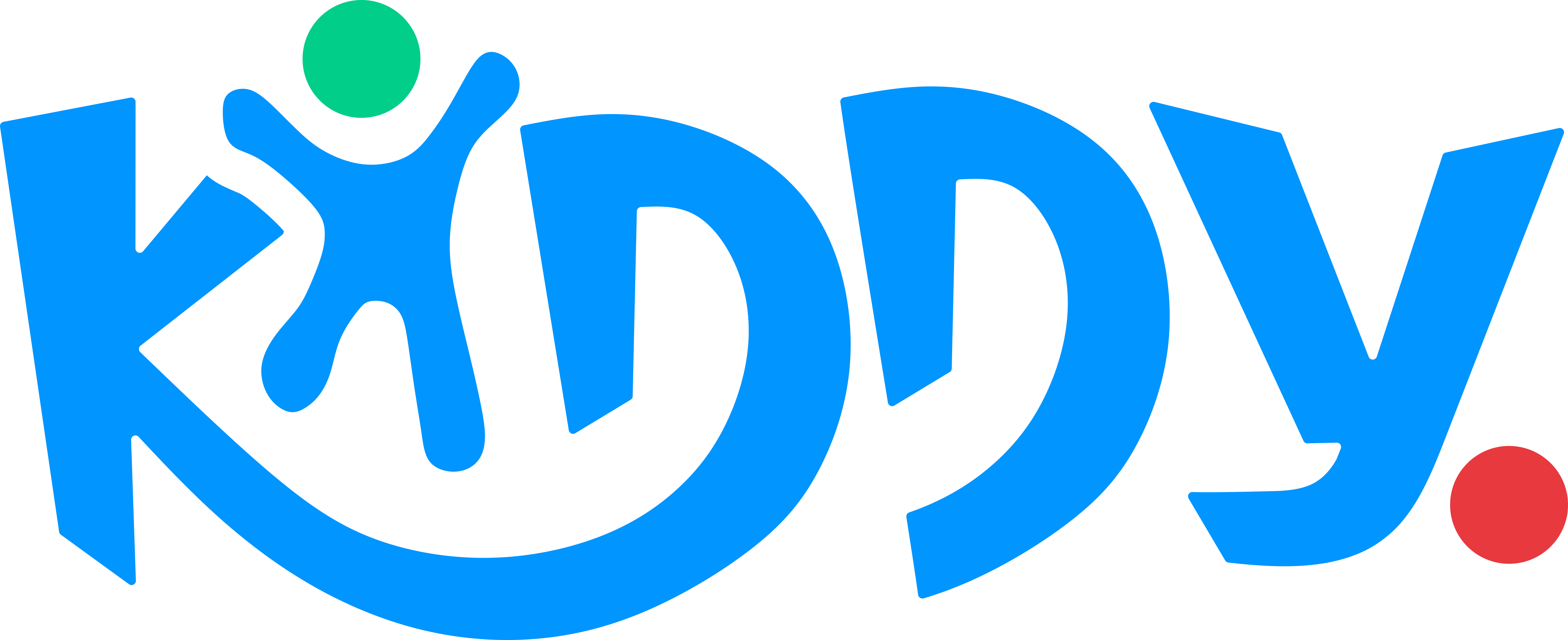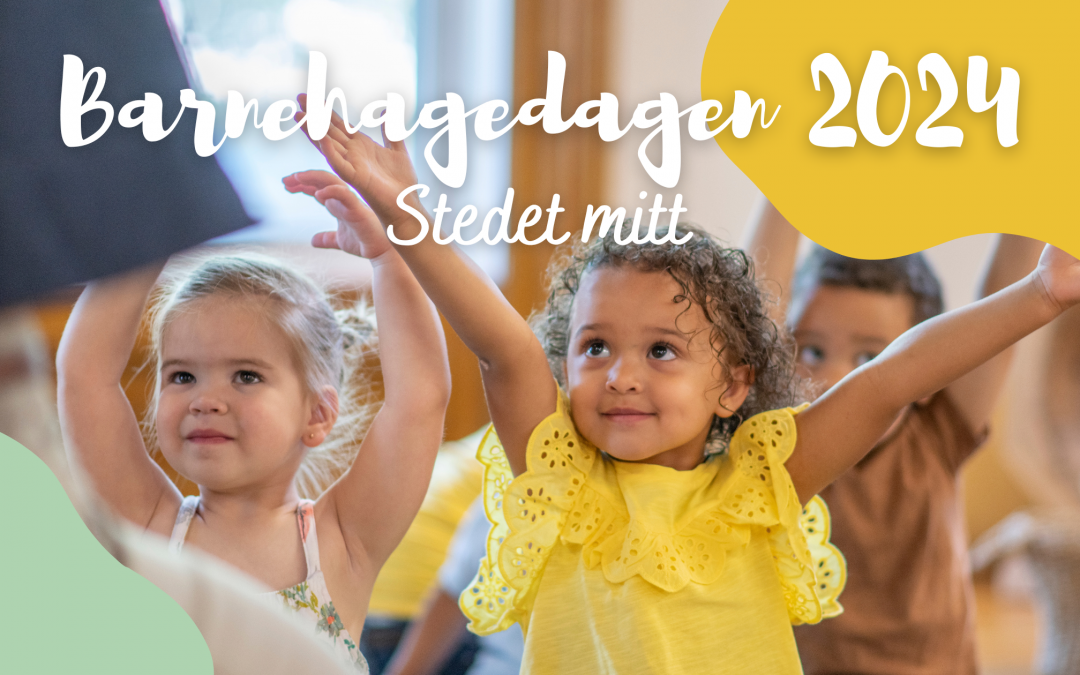Today, March 12, marks the celebration of Kindergarten Day 2024! This event aims to highlight how kindergartens and their staff work to provide children with knowledge of and experience with the cultural heritage in their local communities. Cultural heritage has been chosen as this year’s theme because kindergarten is a place where children gain knowledge and experience of local traditions, fostering a sense of belonging to their own community (Utdanningsforbundet, 2024).
“Kindergarten staff and parents have an important task in providing children with positive experiences in and around their local communities. Through engagement with art, culture, and creativity, kindergartens aim to ensure that children experience joy and pride in their own cultural identity” (Utdanningsforbundet, 2024).
As part of this important day, we want to reflect on the kindergarten as a place of inclusion and belonging in the local community, both for the children and their parents.
Inclusion of both children and parents
In the article “Belonging where you live: about parents’ experiences of belonging through the kindergarten”, Gunnar Magnus Eidsvåg examines the significance of kindergartens for minority parents’ sense of belonging to the local community (Eidsvåg, 2022).
Eidsvåg notes that kindergartens collaborate with parents at both individual and group levels (Kunnskapsdepartementet, 2017, p. 29), and in his article, he finds group-level collaboration particularly interesting. In addition to parent meetings, other events where parents visit the kindergarten are also organized. Eidsvåg observes that in interviews with parents, such events were emphasized, with parents consistently expressing appreciation for them (Eidsvåg, 2022).
Informants emphasize that these parent events mean a lot to the children. Eidsvåg notes that parents notice their children looking forward to their presence in the kindergarten and therefore try to attend these events. Informants also express that they make acquaintances with other parents through these events, which they say makes it natural to strike up a conversation when they meet in other settings (Eidsvåg, 2022).
Furthermore, Eidsvåg writes that his data indicates the importance of the children’s circle of friends being largely connected to the kindergarten. “The children’s belonging through the kindergarten affects their belonging in the private sphere. If the child lives near friends from the kindergarten, the child is drawn to these friends also during leisure time. […] This in turn affects the parents’ opportunities to develop acquaintances with other parents” (Eidsvåg, 2022).
Finally, Eidsvåg writes that belonging through the kindergarten (for parents) is primarily formed through weak ties, but that such ties should not be underestimated as an integrative factor in the community where the kindergarten is located (Eidsvåg, 2022).
Similar to Eidsvåg, Kathrine Rønning Tvinnereim and Gunhild Bergset believe that the kindergarten plays a crucial role in the family’s integration process. “The kindergarten is considered a significant arena for both parents and children, where parents are met by supportive kindergarten staff whom they trust, both as professionals and as fellow human beings,” they write in the article “It’s very different from my home country: Migrant parents’ experiences with communication and interaction with kindergarten staff”. Several informants report that they learn a lot from kindergarten staff and other kindergarten parents (Tvinnereim & Bergset, 2023).
The significance of the kindergarten for inclusion
Senior Advisor at the Norwegian Teachers’ Union, Jon Kaurel, shares this view on the importance of the kindergarten for inclusion and focuses on the importance of the local area. In connection with Kindergarten Day 2024, Kaurel has written the text “The importance of place for community and belonging”.
Kaurel writes that although many kindergartens still organize field trips and allow children to explore their local surroundings, there has been a change in how cultural heritage, local environment, and communities are valued in the kindergarten’s governing documents. Furthermore, he points out that the kindergarten’s grounding in the local community is as important as ever, arguing that there is a risk of forgetting why in our pursuit of other goals (Kaurel, 2024).
Kaurel writes that today’s educational policy often focuses on children’s individual competence development and their later functioning in society. Kaurel believes this approach often ignores children’s natural orientation towards their immediate surroundings and the need to master and understand the world they are part of (Kaurel, 2024). The kindergarten brings together children with diverse backgrounds and cultural identities, and their different experiences and perspectives must be considered to foster belonging (Kaurel, 2024).
Language in a diverse society
Katrine Giæver, Associate Professor in Education at OsloMet University, has written the text “When the place is the world – Kindergarten children’s navigation between the local and the global” on the occasion of Kindergarten Day. In her text, Giæver reminisces about her own time in kindergarten, when she shared references with the staff and other children. She recalls experiences such as holiday trips and weekend activities, where the staff met her with “insight and good questions” (Giæver, 2024). The staff had similar experiences themselves, and they understood what she was talking about. Thus, Giæver writes, the kindergarten functioned as an extension of the experiences she had shared with her family, while also being a place that “was most of all mine” (Giæver, 2024).
Due to the increasing diversity of kindergarten groups, Giæver believes that conscious effort must be made to make the kindergarten an inclusive arena that all children can perceive as their own place owned by all children in the group. In a diverse society, one cannot assume that the people one meets will have experiences similar to one’s own. However, we will always have something fundamental in common, Giæver points out, and continues to write that this is what we must build on when expanding the kindergarten into a local place that incorporates influences from around the world (Giæver, 2024).
The Norwegian Teachers’ Union writes that cultural heritage and inclusion go hand in hand. “Parents, for example, can come to the kindergarten with a desire to share their cultural heritage. This can provide inspiration and collaboration in everyday kindergarten life, as well as give children and staff an understanding and knowledge of different backgrounds and cultures” (Utdanningsforbundet, 2024).
On Kindergarten Day 2024, we want to draw attention to the kindergarten’s unique role as a bridge-builder. With this year’s theme on cultural heritage, we aim to highlight the importance of providing children with knowledge and experience of local traditions, while also emphasizing the inclusion of both children and parents from diverse backgrounds and cultures. When children and caregivers from different backgrounds come together, the kindergarten helps create a common reference point for everyone, and it is these commonalities that we must build upon. As an important part of the local community, the kindergarten plays a central role in creating belonging and community for all. Let us continue to strengthen the collaboration between school, home, and kindergarten to provide children with the best conditions for learning, growth, and development.
https://www.utdanningsforbundet.no/medlemsgrupper/barnehage/barnehagedagen/
https://www.utdanningsforbundet.no/medlemsgrupper/barnehage/barnehagedagen/ny-side/

